
Pettah: The Bustling Heart of Colombo
Pettah, located in the heart of Colombo, is a whirlwind of activity and a treasure trove of experiences. This bustling neighborhood is one of the city's oldest districts, where history and modernity blend seamlessly. As you walk through its narrow streets, you'll be greeted by a symphony of sounds, from the calls of street vendors to the hum of tuk-tuks weaving through the crowd. Pettah is famed for its vibrant markets. The Pettah Market, also known as Manning Market, is a labyrinth of stalls selling everything from fresh produce and textiles to electronics and spices. Each street has its specialty, making it a paradise for bargain hunters. Don’t miss the chance to haggle for a good deal – it’s all part of the experience! Beyond the markets, Pettah offers a peek into Colombo's diverse culture and history. The Dutch Museum, housed in a colonial-era building, provides insights into the city's past under Dutch rule. Nearby, the Jami Ul-Alfar Mosque, with its striking red and white architecture, is a must-see landmark. The neighborhood is also home to several Hindu temples and churches, reflecting Sri Lanka's rich religious tapestry. Food lovers will find Pettah a delight, with street food stalls offering a variety of local delicacies. Try the kottu roti, a popular Sri Lankan dish made with chopped roti, vegetables, and meat. For a sweet treat, indulge in some fresh tropical fruits or traditional sweets from one of the many vendors. Pettah's energy is contagious, making it an unforgettable part of any visit to Colombo. Whether you're shopping, sightseeing, or simply soaking in the atmosphere, this neighborhood promises a rich and authentic experience.
Local tips in Pettah
- Visit early in the morning to avoid the midday heat and crowds.
- Wear comfortable shoes as you will be walking a lot.
- Carry small change for purchases and street food.
- Stay aware of your belongings in the crowded market areas.
- Respect local customs when visiting religious sites.
Pettah: The Bustling Heart of Colombo
Pettah, located in the heart of Colombo, is a whirlwind of activity and a treasure trove of experiences. This bustling neighborhood is one of the city's oldest districts, where history and modernity blend seamlessly. As you walk through its narrow streets, you'll be greeted by a symphony of sounds, from the calls of street vendors to the hum of tuk-tuks weaving through the crowd. Pettah is famed for its vibrant markets. The Pettah Market, also known as Manning Market, is a labyrinth of stalls selling everything from fresh produce and textiles to electronics and spices. Each street has its specialty, making it a paradise for bargain hunters. Don’t miss the chance to haggle for a good deal – it’s all part of the experience! Beyond the markets, Pettah offers a peek into Colombo's diverse culture and history. The Dutch Museum, housed in a colonial-era building, provides insights into the city's past under Dutch rule. Nearby, the Jami Ul-Alfar Mosque, with its striking red and white architecture, is a must-see landmark. The neighborhood is also home to several Hindu temples and churches, reflecting Sri Lanka's rich religious tapestry. Food lovers will find Pettah a delight, with street food stalls offering a variety of local delicacies. Try the kottu roti, a popular Sri Lankan dish made with chopped roti, vegetables, and meat. For a sweet treat, indulge in some fresh tropical fruits or traditional sweets from one of the many vendors. Pettah's energy is contagious, making it an unforgettable part of any visit to Colombo. Whether you're shopping, sightseeing, or simply soaking in the atmosphere, this neighborhood promises a rich and authentic experience.
Iconic landmarks you can’t miss
Pettah Floating Market
Experience the vibrant charm of Pettah Floating Market in Colombo, where culture, flavors, and shopping converge in a unique floating setting.
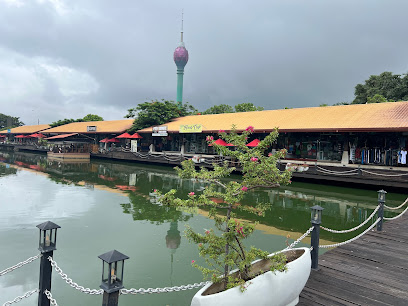
Pettah Gold Market
Explore the vibrant Pettah Gold Market in Colombo, a historical gem showcasing exquisite jewelry and rich cultural heritage, perfect for every tourist.
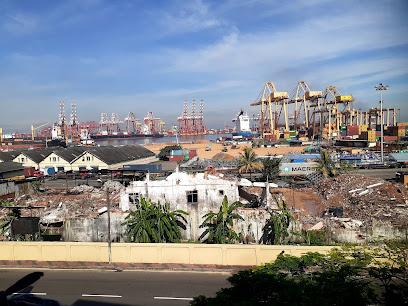
Gamini Hall Junction
Explore the rich history and vibrant culture at Gamini Hall Junction, Colombo's iconic landmark blending the old with the new.
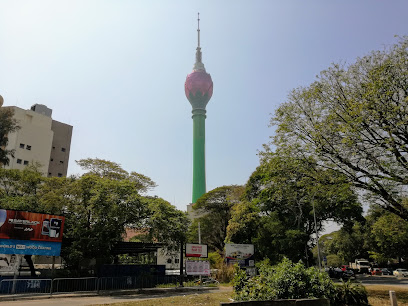
Pitakotuwe Bo Gaha
Discover the serene beauty and rich history of Pitakotuwe Bo Gaha, a remarkable historical landmark in Colombo, Sri Lanka.
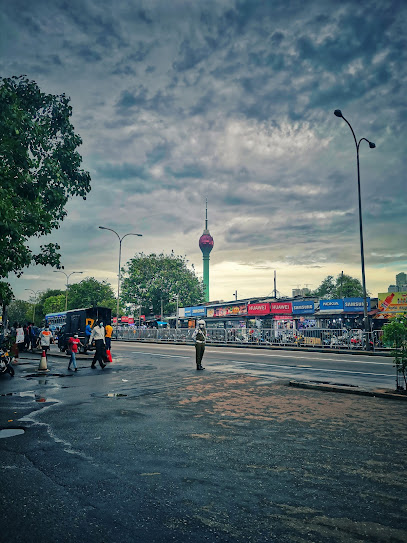
Khan Clock Tower
Discover the historical charm of Colombo at Khan Clock Tower, where architecture meets the vibrant pulse of the city.
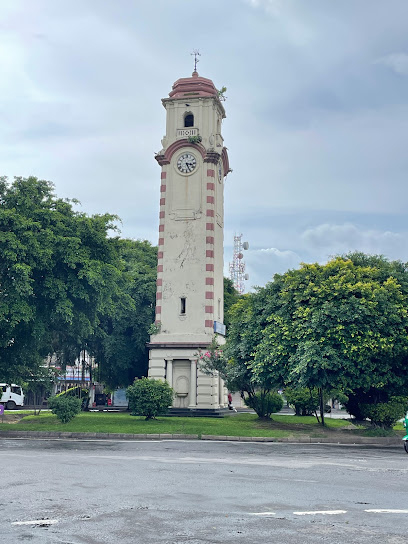
1st Cross Street Pettah
Explore the vibrant culture and local flavors of Colombo at 1st Cross Street Pettah, a bustling marketplace full of life and color.
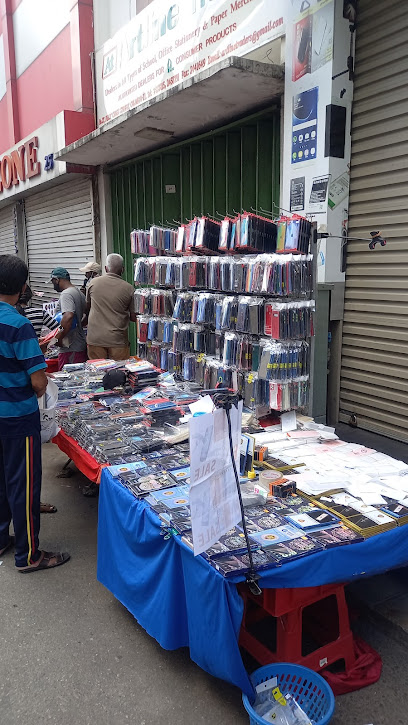
Kayman's Gate - Dutch Bell Tower, කයිමන් දොරකඩ
Discover the historical charm of Kayman's Gate, the Dutch Bell Tower in Colombo, a symbol of the city's colonial past and architectural beauty.
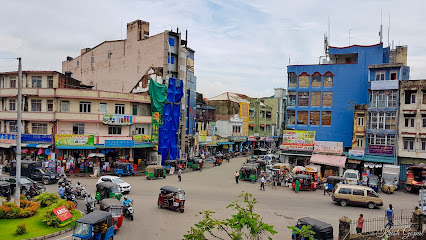
The Old Town Hall Building
Explore the Old Town Hall Building in Colombo, a stunning blend of historical architecture and archaeological treasures, perfect for history enthusiasts and curious travelers.
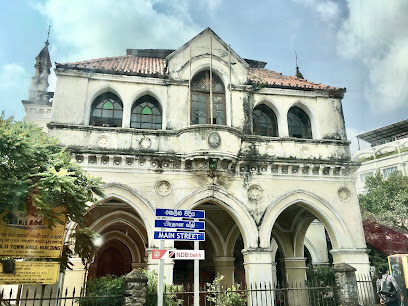
Transworks House
Explore the historic Transworks House in Colombo, a stunning colonial landmark that showcases the city's rich architectural heritage.
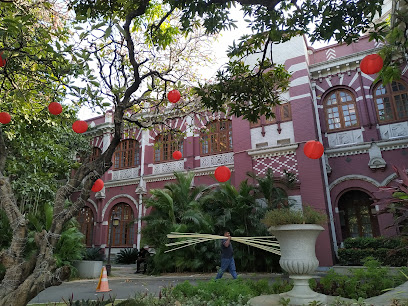
Pettah Bodiya
Discover tranquility at Pettah Bodiya, a serene Buddhist temple in Colombo, where culture meets spirituality amidst the city's vibrant atmosphere.
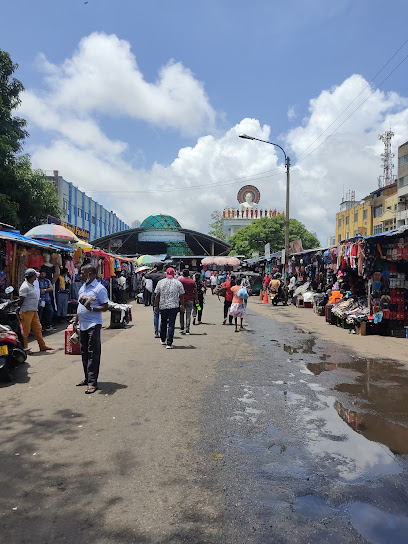
Unmissable attractions to see
Gangaramaya Temple
Explore the exquisite Gangaramaya Temple, a serene Buddhist sanctuary in Colombo, rich in history, culture, and stunning architectural beauty.
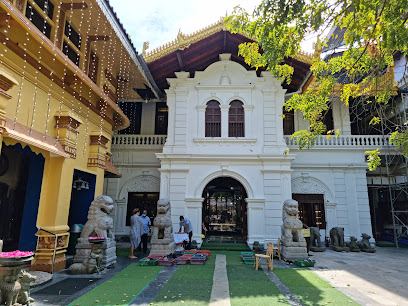
Independence Square
Explore Independence Square in Colombo, a historical landmark celebrating Sri Lanka's rich heritage and independence amidst beautiful gardens.
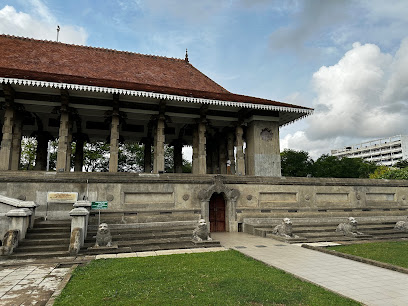
Excel World Entertainment Park
Explore the excitement at Excel World Entertainment Park, Colombo's ultimate destination for bowling, laser tag, and arcade adventures.
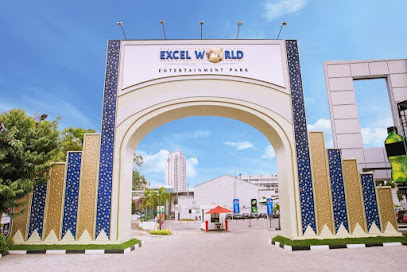
Gangaramaya Park
Explore the tranquil beauty of Gangaramaya Park in Colombo, a serene escape filled with lush greenery and cultural treasures.
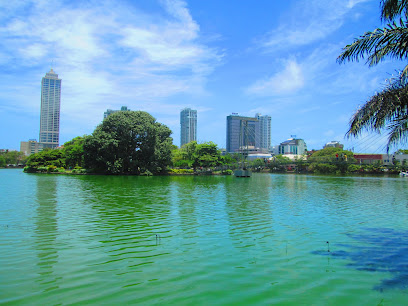
Essential places to dine
Golden Cafe
Discover Golden Cafe in Colombo: A charming vegetarian haven offering delightful breakfast dishes and a cozy atmosphere perfect for all travelers.
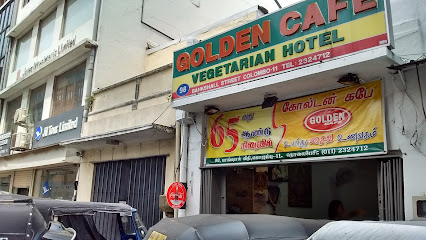
Sriyani
Discover the vibrant flavors of vegetarian cuisine at Sriyani in Colombo - where health meets tradition in every delicious bite.
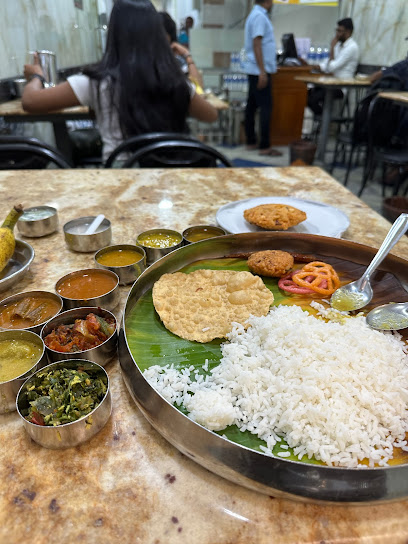
New Palm Leaf Hotel
Discover authentic Sri Lankan flavors at New Palm Leaf Hotel in Colombo - a cozy spot offering traditional dishes and fast food options at affordable prices.
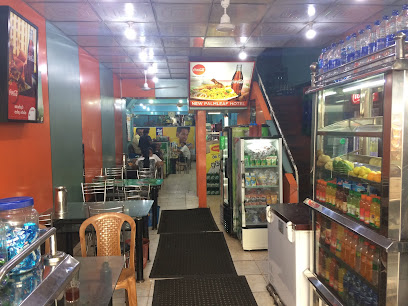
Neelagiri Restaurant & Bakery
Experience authentic Sri Lankan cuisine at Neelagiri Restaurant & Bakery in Colombo—delicious food served in a warm and welcoming environment.
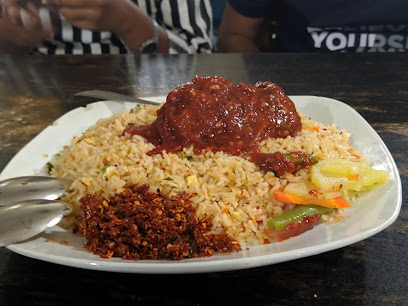
Grand Dish Hotel
Experience the flavors of Sri Lanka at Grand Dish Hotel - a culinary gem in Colombo offering exquisite local and international dishes.
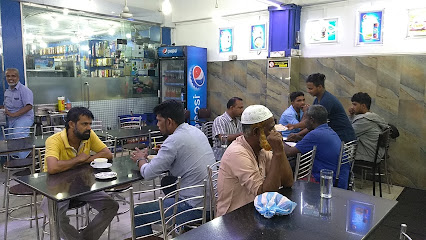
New Crown Hotel
Discover exquisite dining at New Crown Hotel in Colombo, where local flavors meet international cuisine in an inviting atmosphere.
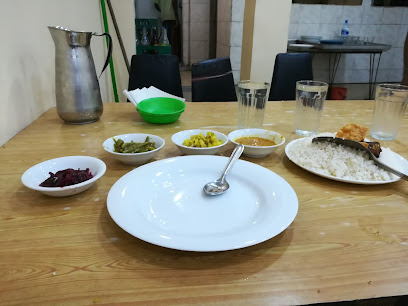
New Palace Hotel
Experience exquisite dining at New Palace Hotel in Colombo - where authentic Sri Lankan flavors meet exceptional service in an inviting atmosphere.
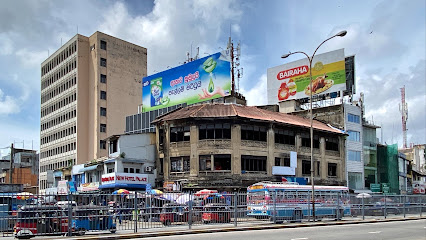
Indramalee Hotel & Cream House
Experience authentic Sri Lankan flavors at Indramalee Hotel & Cream House in Colombo - where culinary excellence meets warm hospitality.
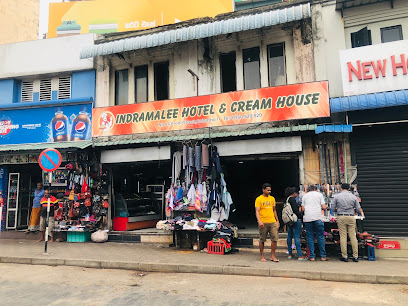
Georgian restaurant
Savor authentic Georgian cuisine in Colombo; indulge in rich flavors and warm hospitality at this charming restaurant.

Petti Kade - The Kitchen on Boats
Experience unique family dining at Petti Kade - The Kitchen on Boats in Colombo with authentic Sri Lankan cuisine aboard charmingly decorated boats.
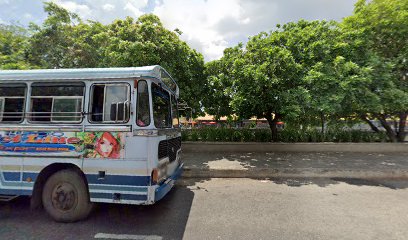
Markets, malls and hidden boutiques
Pettah Floating Market
Experience the vibrant Pettah Floating Market in Colombo, where local culture meets unique shopping and delicious cuisine.
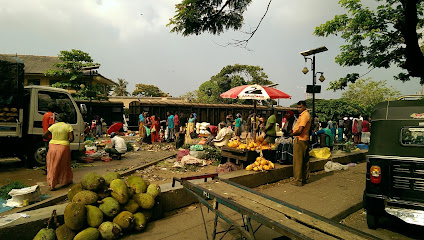
Ram Brothers
Explore Ram Brothers in Colombo for exquisite silk sarees and traditional Sri Lankan attire, promising a unique shopping experience.
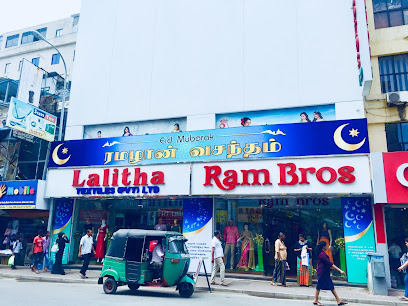
The Shopping Kingdom
Discover the ultimate shopping experience at The Shopping Kingdom in Colombo, where local treasures and global brands meet in a vibrant atmosphere.

Zoop Retail
Explore the vibrant styles of Zoop Retail in Colombo, where local craftsmanship meets contemporary fashion trends for an unforgettable shopping experience.
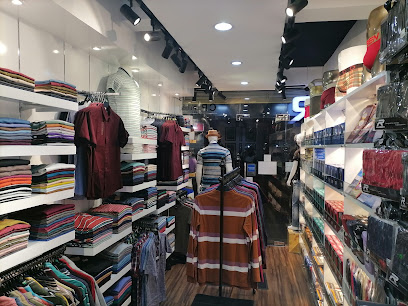
Sequins
Discover exquisite fashion accessories and unique cake decorating supplies at Sequins in Colombo, a shopping paradise for every creative soul.
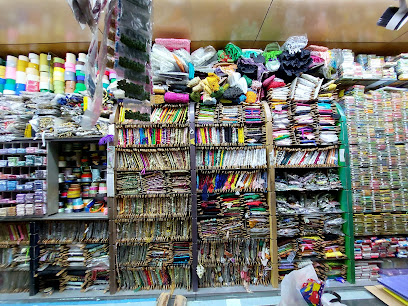
2nd Cross Street
Discover a vibrant beauty supply destination on 2nd Cross Street, Colombo, where local and international beauty trends come alive.
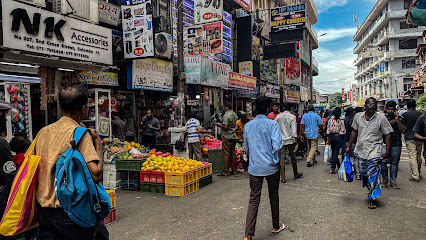
Pettah World Market
Explore the bustling Pettah World Market in Colombo, a vibrant shopping destination filled with unique local products and a rich cultural experience.
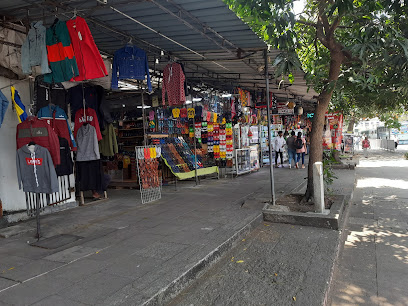
Magical Toys Paradise
Magical Toys Paradise: A whimsical gift shop in Colombo brimming with enchanting toys and delightful surprises for all ages.
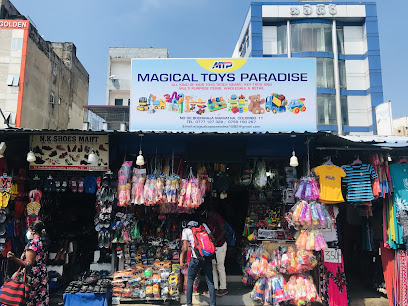
Krishna Stores
Discover the charm of local shopping at Krishna Stores in Colombo, where friendly service meets affordable prices for a delightful experience.
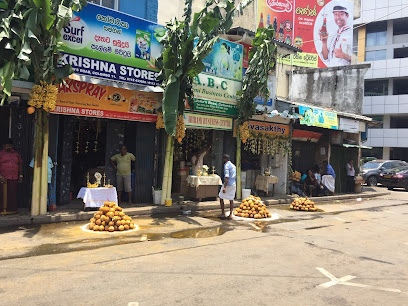
A J Peiris Dropery Shop
Explore the spiritual heart of Colombo at A J Peiris Dropery Shop, where religious goods meet rich cultural heritage.
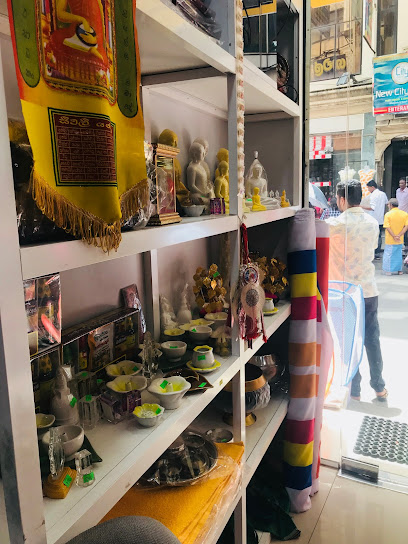
Essential bars & hidden hideouts
The REPUBLK
Experience the vibrant nightlife at The REPUBLK, Colombo's premier bar and bistro offering exquisite cuisine and a lively atmosphere.
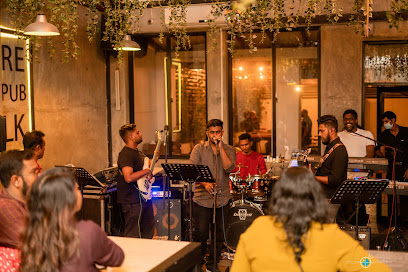
Fort Central Bar & Kitchen
Discover the vibrant flavors and lively atmosphere at Fort Central Bar & Kitchen, a must-visit culinary hotspot in Colombo.
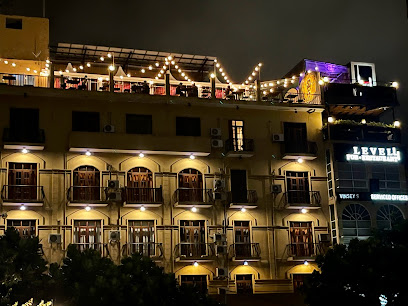
Grand Oriental Hotel - Tap Bar
Discover the Grand Oriental Hotel Tap Bar, a tranquil retreat in the heart of Colombo, perfect for enjoying refreshing drinks and stunning city views.
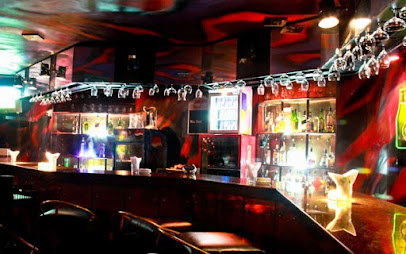
Hansagiri Restaurant & Bar
Discover the vibrant nightlife of Colombo at Hansagiri Restaurant & Bar, where delicious food meets refreshing drinks in an inviting atmosphere.
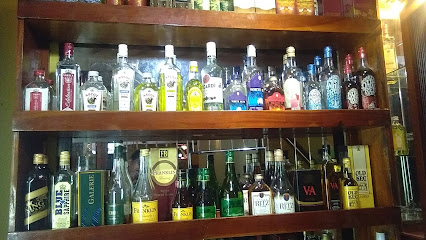
Western Restaurant & Bar
Savor the vibrant flavors of Colombo at the Western Restaurant & Bar, where culinary delights meet a lively atmosphere.
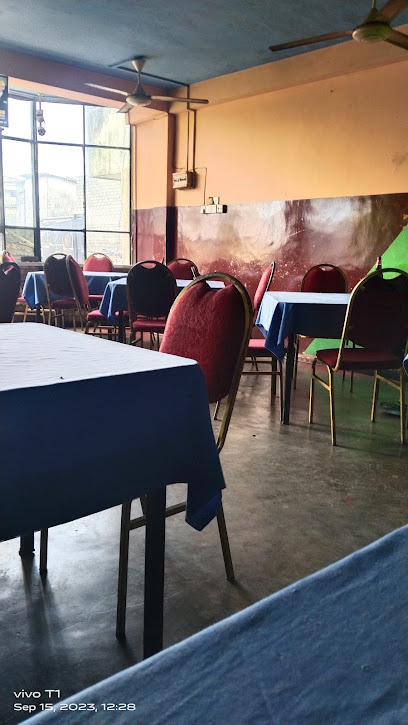
The Barge
Discover the vibrant atmosphere of The Barge, Colombo's premier waterfront bar offering exquisite drinks, delicious food, and stunning views.
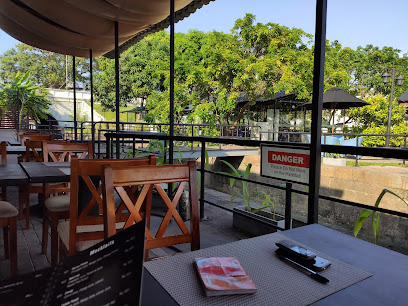
Rafco Wine Stores
Explore a diverse selection of fine wines and enjoy a cozy atmosphere at Rafco Wine Stores, a must-visit bar in Colombo.
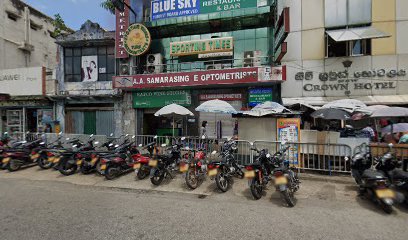
Venus bar
Discover Colombo's vibrant nightlife at Venus Bar, where local flavors and international spirits come together in a stylish setting.
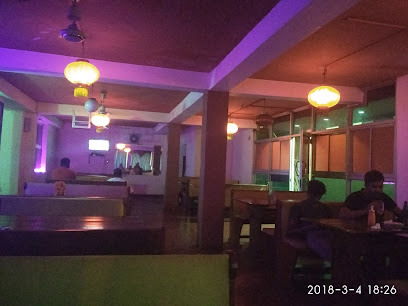
Windsor Restaurant
Discover Windsor Restaurant in Colombo, where exquisite flavors and a cozy ambiance converge for an unforgettable dining experience.
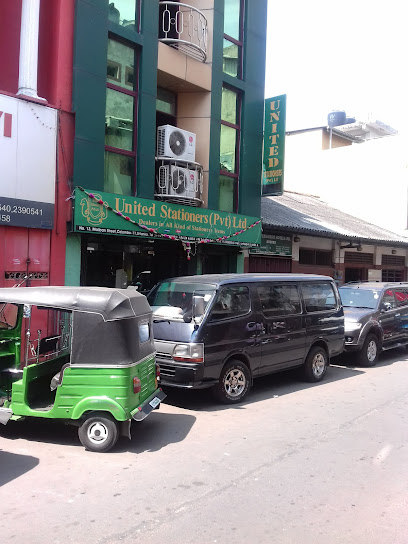
Chathuranga Thai spa
Discover tranquility and rejuvenation at Chathuranga Thai Spa, a haven for relaxation in the heart of Colombo, where traditional Thai therapies meet modern wellness.
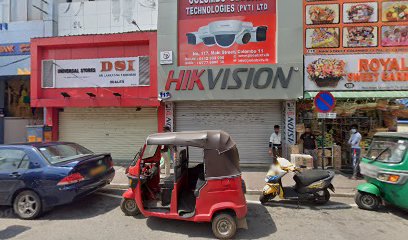
Local Phrases
-
- Helloආයුබෝවන්
[āyubōvan] - Goodbyeවාරයේ
[vārayē] - Yesඔව්
[Ōv] - Noනෑ
[nē] - Please/You're welcomeකරන්න/ආයුබෝවන්
[karanna/āyubōvan] - Thank youස්තූතියි
[stutiyi] - Excuse me/Sorryසමාන්තරේ/කිසිවෙමි
[samāntherē/kisiwēmi] - How are you?ඔය කොහොමද?
[Ōya kohomada?] - Fine. And you?හතරම්. ඔයා?
[hatharam. Ōyā?] - Do you speak English?ඔයා ඉංග්රීසි කතා කරයිද?
[Ōyā iṅgrīsi kathā karayida?] - I don't understandමට දැනුම් නෑ
[matē dānum nē]
- Helloආයුබෝවන්
-
- I'd like to see the menu, pleaseකරන්න මෙනු බලන්න
[karanna mēnu balanna] - I don't eat meatමාමිලා කමාන්ඩු නෑ
[māmila kamāndu nē] - Cheers!සුරගත්!
[suragatha!] - I would like to pay, pleaseකරන්න ගෙවාගෙනවා
[karanna gēvāgēnavā]
- I'd like to see the menu, pleaseකරන්න මෙනු බලන්න
-
- Help!උකුලෙක්!
[ukulēk!] - Go away!යයිදම්!
[yayidam!] - Call the Police!පොලිස් කොල්ලනවා
[polis kollanavā] - Call a doctor!වෛරස් කොල්ලනවා
[varas kollanavā] - I'm lostමට අතිරේක්
[matē atirek] - I'm illමට රෝගා
[matē rōgā]
- Help!උකුලෙක්!
-
- I'd like to buy...කරන්න ... මෙනු බැලනෙනවා
[karanna ... mēnu bālenenavā] - I'm just lookingමම පරිපාල් කරමි
[mama paripal karami] - How much is it?එයා අගයක් කොහෙද?
[eyā agayak koheda?] - That's too expensiveඑයා ඉතා ගිනිමක් තියා
[eyā itha ginimak tiya] - Can you lower the price?ඔබ අගය අටවනවාද?
[ōba agaya atawanavāda?]
- I'd like to buy...කරන්න ... මෙනු බැලනෙනවා
-
- What time is it?දිනය කොටුවෙද?
[dinaya kotuweda?] - It's one o'clockඑකට
[ēkata] - Half past (10)දහයි දහය
[dahayi dahaya] - Morningවැනිදා
[waniyā] - Afternoonදවස
[davasa] - Eveningසවරය
[savaraya] - Yesterdayඊයේ
[īyē] - Todayඅද
[ada] - Tomorrowහෙට
[heta] - 1එක
[ēka] - 2දෙවන
[dēvana] - 3තුන
[thuna] - 4හත්මදා
[hathmada] - 5පහ
[paha] - 6හය
[haya] - 7හත
[hatha] - 8අට
[ata] - 9නතු
[nathu] - 10දහය
[dahaya]
- What time is it?දිනය කොටුවෙද?
-
- Where's a/the...?කොහෙ කොටේ...?
[koheda kotē...?] - What's the address?ලිපිනය කොටුවෙද?
[lipinaya kotuweda?] - Can you show me (on the map)?ඔබ මාපිලට පෙන්නද?
[ōba mapilata penna da?] - When's the next (bus)?ඊත් කොටුවෙද (බස්)?
[īth kotuweda (bas)?] - A ticket (to ....)ටිකට් (වෙත ...)
[tikat (wētha ...)]
- Where's a/the...?කොහෙ කොටේ...?
History of Pettah
-
Pettah's history is deeply intertwined with the colonial era, particularly during the Portuguese and Dutch occupations in the 16th and 17th centuries. The area served as a vital trading port for these colonial powers, facilitating the exchange of goods such as spices, textiles, and precious stones. The architecture and layout of Pettah reflect this colonial legacy, with narrow streets and bustling markets that have persisted over centuries.
-
The establishment of the Colombo Fort in the late 17th century by the Dutch significantly influenced Pettah's development. As Colombo emerged as a key administrative and commercial hub, Pettah became its vibrant commercial extension, catering to local and foreign traders alike. The proximity to the Fort allowed Pettah to thrive as a center for commerce, where merchants from diverse backgrounds converged.
-
Throughout the 19th century, Pettah evolved into a melting pot of cultures, with communities of Sinhalese, Tamils, Muslims, and Burghers coexisting and influencing each other's traditions. This cultural diversity is evident in the various festivals, culinary offerings, and religious practices found in the area. The vibrant bazaars of Pettah serve as a testament to this rich cultural tapestry.
-
Following Sri Lanka's independence in 1948, Pettah experienced both challenges and opportunities. The area saw significant urbanization and modernization, with new markets and businesses emerging. However, the socio-political changes also led to shifts in demographics, as many residents moved to suburban areas. Despite these changes, Pettah has retained its historical significance as a commercial hub in Colombo.
-
Today, Pettah is known for its bustling markets, vibrant street life, and diverse cultural offerings. The neighborhood continues to be a key commercial zone in Colombo, attracting both locals and tourists. Historical sites, such as the Jami Ul-Alfar Mosque and the Old Dutch Hospital, coexist with modern retail spaces, reflecting the area's dynamic history and its role in the ongoing narrative of Colombo.
Pettah Essentials
-
Pettah is easily accessible from other neighborhoods in Colombo. The Colombo Fort Railway Station is the nearest train station, with regular services connecting Pettah to major cities. Additionally, several bus routes from various parts of Colombo terminate at Pettah. Taxis and rideshare services, such as PickMe and Uber, are also convenient options for reaching Pettah directly.
-
Pettah is a bustling area best explored on foot to fully appreciate its vibrant street life and markets. Local buses and tuk-tuks are available for longer distances, while bicycles can be rented from nearby shops. The Colombo Fort Railway Station allows for easy access to other parts of the city and surrounding areas by train.
-
Pettah is generally safe for tourists, but it is advisable to remain vigilant. Areas near the busy markets can be prone to petty theft, so keep your belongings secure. It is advisable to avoid walking alone at night in less crowded areas. Be cautious in extremely crowded places, as pickpocketing incidents can occur.
-
In case of an emergency, dial 119 for police assistance, 110 for fire emergencies, and 111 for medical emergencies. Ensure you have travel insurance that covers medical situations. In Pettah, there are hospitals and pharmacies where you can seek help for minor ailments.
-
Fashion: Do wear comfortable, modest clothing; avoid revealing outfits, especially when visiting religious sites. Religion: Do respect local customs, covering your shoulders and knees when entering temples. Public Transport: Do offer your seat to the elderly; don’t eat or drink on buses or trains. Greetings: Do greet with a smile and a nod; don’t initiate physical contact unless appropriate. Eating & Drinking: Do try local street food; don’t waste food or refuse offerings, as it may be seen as disrespectful.
-
To experience Pettah like a local, visit the bustling Pettah Market early in the morning for fresh produce and spices. Engage with local vendors, who are often happy to share stories about their products. Try the street food from small stalls, but ensure they maintain good hygiene. Attend local festivals if present during your visit, as they provide a glimpse into the rich culture and traditions of the area.
Nearby Cities to Pettah
-
Things To Do in Negombo
-
Things To Do in Bentota
-
Things To Do in Hikkaduwa
-
Things To Do in Kandy
-
Things To Do in Nuwara Eliya
-
Things To Do in Galle
-
Things To Do in Unawatuna
-
Things To Do in Mirissa
-
Things To Do in Ella
-
Things To Do in Matara
-
Things To Do in Sigiriya
-
Things To Do in Anuradhapura
-
Things To Do in Polonnaruwa
-
Things To Do in Trincomalee
-
Things To Do in Kanyakumari










